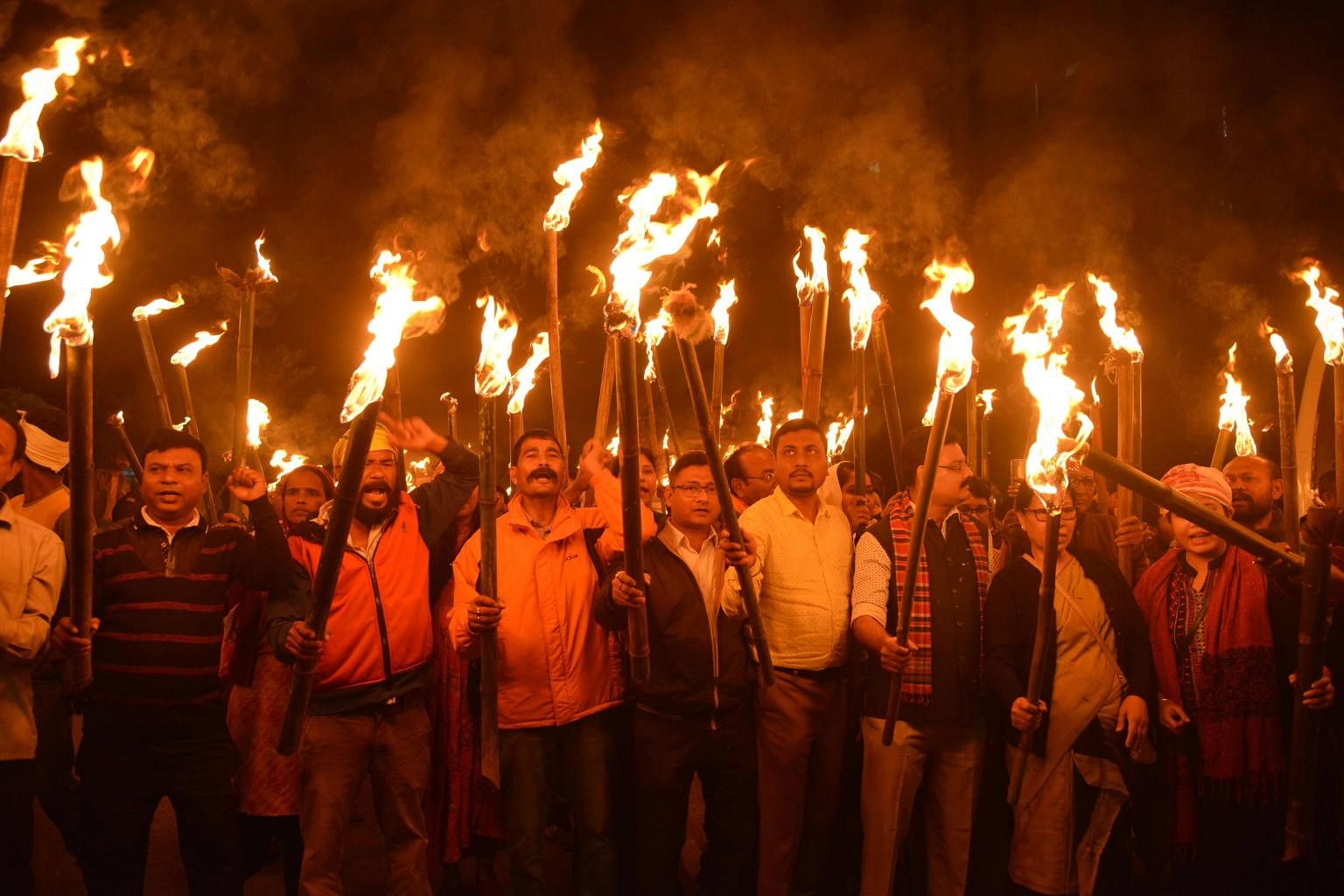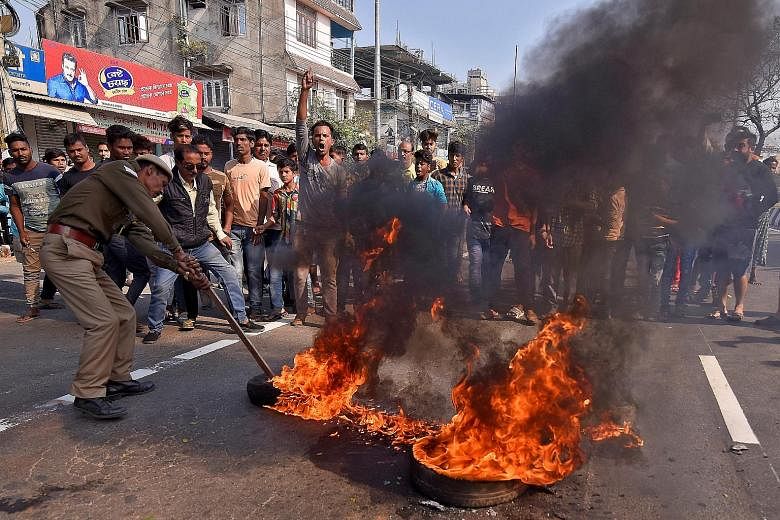GUWAHATI (India) • Protesters set fire to tyres and cut down trees to block roads in a shutdown yesterday across India's north-east, hours after lawmakers approved the government's new citizenship Bill.
The legislation, set to go before the Upper House today, will fast-track citizenship claims by refugees from three neighbouring countries - but not if they are Muslim. For Islamic groups, the opposition, rights groups and others, this fits into Prime Minister Narendra Modi's Hindu nationalist agenda to marginalise India's 200 million Muslims - something he denies.
People in north-east India object for different reasons, fearing citizenship for large numbers of Hindu migrants from Bangladesh, who are regarded as intruders.
Yesterday, the region sandwiched between Bangladesh, China and Myanmar was crippled by a general strike called by dozens of organisations, with buses off the roads and most schools and shops shut.
"The bandh (strike) has drawn a total response in the north-eastern states," said Mr Samujjal Bhattacharyya from the powerful umbrella group the North East Students' Organisation.
"We have made it clear... the CAB (Citizenship Amendment Bill) will not be accepted, and we are going to intensify our agitation," he told Agence France-Presse.
"Assam and north-eastern states have already taken a huge burden of illegal foreigners," he said.
India's Lower House passed the Bill just after midnight, following a fiery debate that saw one Muslim MP compare the government to the Nazis. The Bill, once it passes into law, will make it much easier for Hindus, Sikhs, Buddhists, Jains, Parsis and Christians fleeing Afghanistan, Bangladesh and Pakistan to become Indians.
The Modi government says Muslims are excluded because they do not face persecution in these three countries. Also excluded are minorities fleeing other countries - such as Tamils from Sri Lanka, Rohingya from Myanmar and Tibetans from China.
"This Bill is in line with India's centuries-old ethos of assimilation and belief in humanitarian values," Mr Modi tweeted.
Home Minister Amit Shah told Parliament: "I say this again and again, this Bill has nothing to do with the Muslims in this country."
Mr Shah has stoked fears among India's Muslims with his aim to hold a nationwide National Register of Citizens (NRC) that he says will see all "infiltrators" excluded by 2024.
On Monday, nearly 1,200 scientists and scholars from institutions in India and abroad published a joint letter expressing their dismay at the legislation, saying the Constitution called for members of all faiths to be treated equally.
The US Commission on International Religious Freedom on Monday called for sanctions on Mr Shah while terming the Bill a "dangerous turn in the wrong direction". It said the Bill, with the proposed NRC, was creating a religious test that would strip Indian citizenship from millions of Muslims.

When the NRC is prepared, people excluded from the list will be required to prove their Indian citizenship before a tribunal or risk detention or deportation.
Pakistani Prime Minister Imran Khan said in a tweet that the CAB by India's "fascist" government violates all norms of international human rights law and bilateral agreements.
On Aug 5, India scrapped nearly seven decades of autonomy in the Muslim-majority region of Kashmir. Just three weeks later, in the north-eastern state of Assam, some 1.9 million people, mostly Muslims, faced the risk of losing their Indian citizenship as Mr Modi's government sought to enforce an NRC to weed out illegal migrants. Last month, Hindus won a Supreme Court case over a religious site disputed for centuries in the northern city of Ayodhya. Mr Modi's Bharatiya Janata Party promised to build a grand temple there.
"This is a clear sign that the Hindu right in India has been emboldened to push forward with its agenda," said Professor Katharine Adeney, director of the University of Nottingham Asia Research Institute, who specialises in South Asian politics and ethnic conflict.
AGENCE FRANCE-PRESSE, BLOOMBERG

